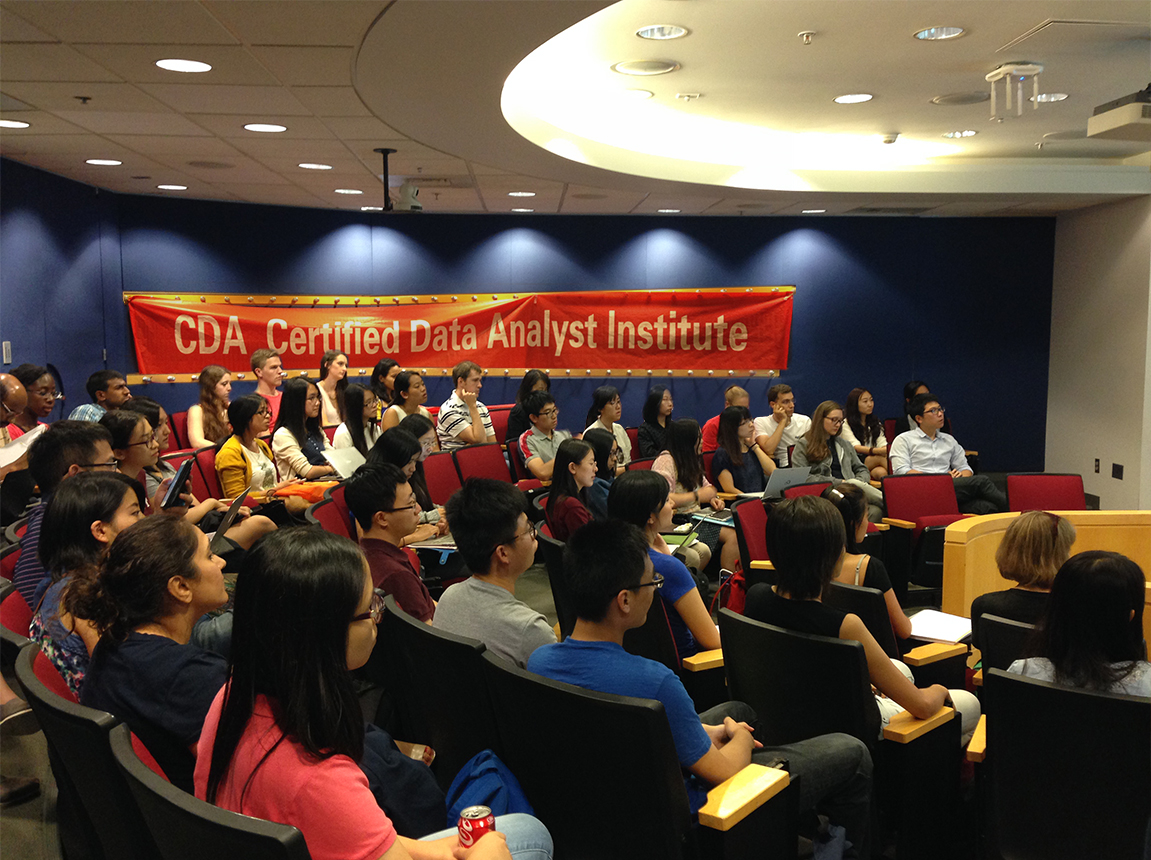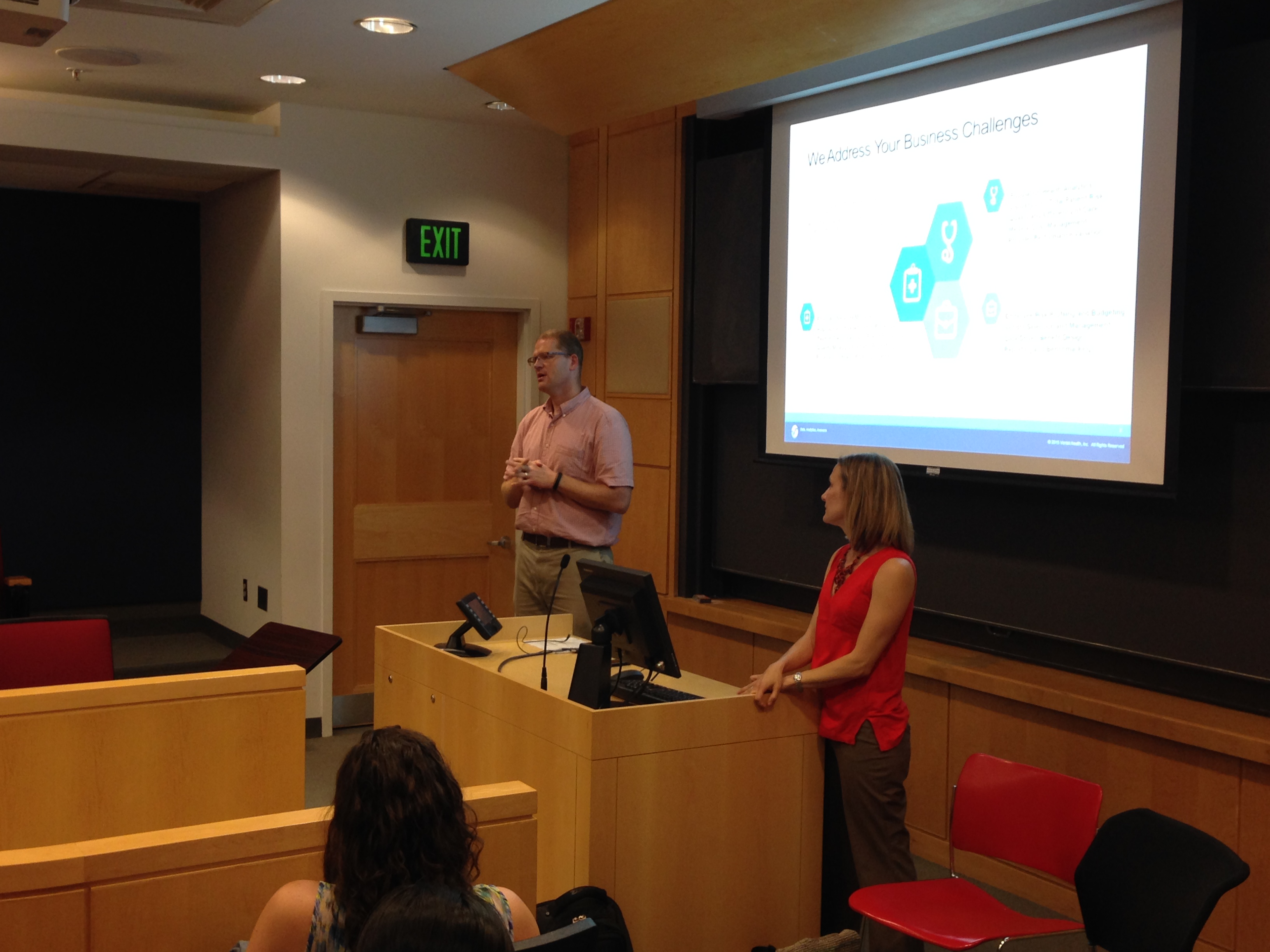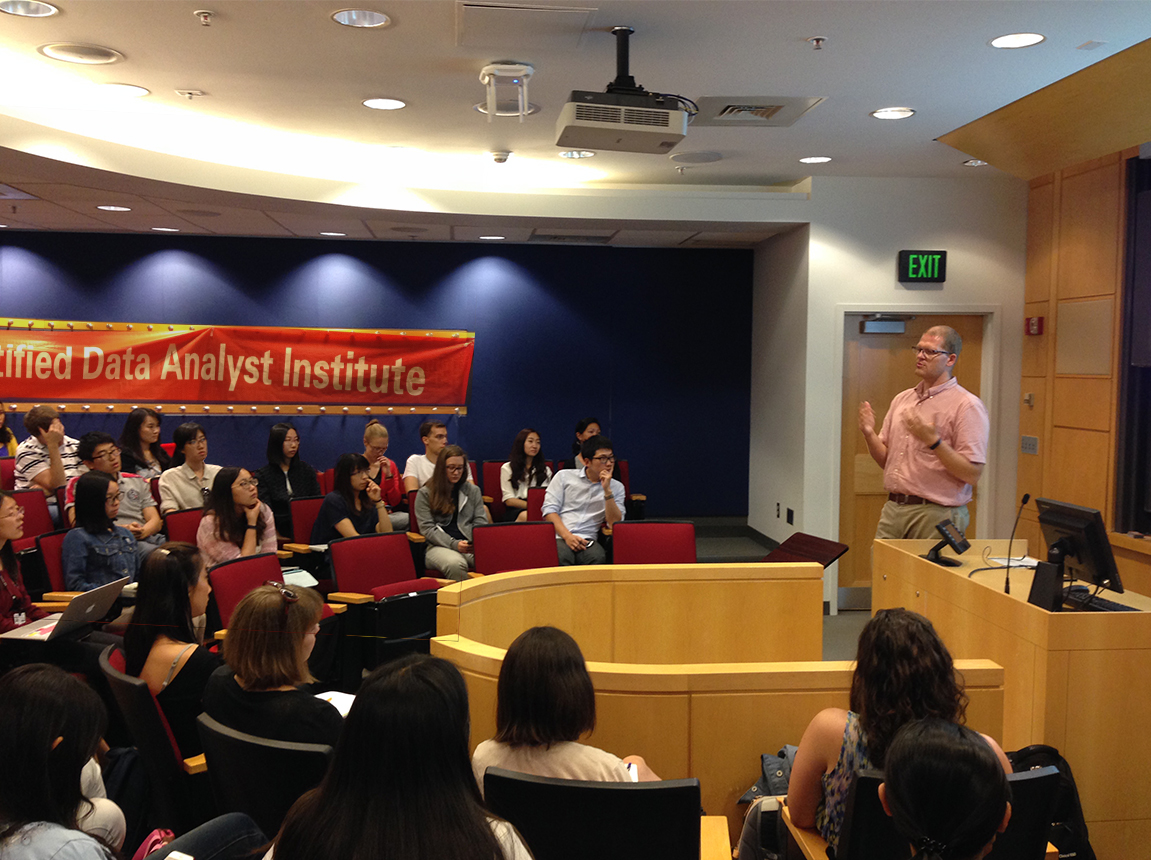Summary of CDA Event

1. Speaker information

Jared Christensen is a Senior Director at Pfizer in the Pharmatherapeutics Research and Development group. He was worked at Pfizer for 6 years. Previously to working at Pfizer, Jared worked at Wyeth for 5 years before it was purchase by Pfizer in October of 2010. Jared has worked across the spectrum of clinical trials from Phase 1 to Phase 4, but has spent most of his time working on Phase 1 and 2 clinical trials. Jared completed his PhD research at HSPH in 2004.
Marie Gayron is a Research Scientist in the Population Health division of Verisk Health. She has learned from and made substantial contributions to many arenas of the healthcare analytics landscape including the public sector, a nationally recognized health plan, a start-up that was successfully acquired, and a publicly traded company that specializes in data-driven healthcare solutions. She is known for developing powerful identification algorithms that predict costly events and identify high risk populations, transforming data into actionable reporting solutions, streamlining inefficient processes through automation, and data visualization. Marie has substantial experience and a special interest in many facets of the Medicare Advantage population from identifying case management opportunities to risk adjustment. Ms. Gayron holds a Bachelor of Science from Salem State University and a Master of Public Health from Boston University.
2. Company information
Pfizer Inc., a biopharmaceutical company, discovers, develops, manufactures, and sells healthcare products worldwide. The company operates through Global Innovative Pharmaceutical (GIP); Global Vaccines, Oncology and Consumer Healthcare (VOC); and Global Established Pharmaceutical (GEP) segments. The GIP segment develops, registers, and commercializes medicines for various therapeutic areas, including inflammation, cardiovascular/metabolic, neuroscience and pain, rare diseases, and womens/mens health. The VOC segment develops and commercializes vaccines, as well as products for oncology. It also provides over-the-counter products comprising dietary supplements under the Centrum, Caltrate, and Emergen-C brands; pain management products under the Advil and ThermaCare brands; gastrointestinal products under the Nexium 24HR/Nexium Control brand; respiratory products under the brand names of Robitussin, Advil Cold & Sinus, Advil Congestion Relief, and Dimetapp; and personal care products under the ChapStick and Preparation H brands. The GEP segment offers patent-protected products that have lost marketing exclusivity in various markets; and generic pharmaceuticals, and sterile injectable and biosimilar development products. The company serves wholesalers, retailers, hospitals, clinics, government agencies, pharmacies, and individual provider offices, as well as centers for disease control and prevention. It has collaboration with BIND Therapeutics, Inc. to develop and commercialize multiple Accurins. Pfizer Inc. was founded in 1849 and is headquartered in New York, New York.
Verisk Analytics, Inc. is an American data analytics and risk assessment firm based in Jersey City, New Jersey, United States, serving customers worldwide in insurance, energy, healthcare, financial services, government, and risk management. The company uses proprietary data sets and industry expertise to provide predictive analytics and decision support solutions in fraud prevention, actuarial science, insurance coverages, fire protection, catastrophe and weather risk, data management, and other fields.
The company was privately held until its October 6, 2009, initial public offering, which raised $1.9 billion for several of the large insurance companies that were its primary shareholders, making it the largest IPO in the United States for the year 2009.[2] The firm did not raise any funds for itself in the IPO, which was designed to provide an opportunity for the firm's casualty and property insurer owners to sell some or all of their holdings and to provide a market price for those retaining their shares. The 2009 IPO was priced at $22 per share for 85.25 million shares owned by its shareholders, including American International Group, The Hartford and Travelers, making it the largest since the 2008 IPO for Visa Inc. Among the firm's largest shareholders, Berkshire Hathaway was the only company not to sell any of its stock in the October IPO.
3. Notes

1). Jobs for data scientists
Data science jobs are among the top high-paid professions in US. There is a high demand of data scientists with substantive knowledge in a specific field, for example, health care or finance. It is a fact that existing school programs either at PhD or Master level probably cannot satisfy the increasing need, which provides an opportunity for educational or training programs to train more data scientists.
2). Popular statistical software
In both big pharmaceutical companies and health care consulting firms, SAS is still the standard statistical software for data management, analysis and report. Also, familiarity with Database languages (SQL) is also required in practice.
3). Popular statistical techniques
In pharmaceutical companies, most of the statistical jobs are about conducting clinical trials, including phase I, II and III trials. Therefore, learning the basic principles of designing and conducting clinical trials, like calculating sample size and powers are essential skills. Nowadays, sequential design and Bayesian adaptive design are playing more important roles.
4). Non-statistical majors
If a student has no formal statistical training from any academic program but wants to find a data scientist job, it’s better to learn some basic statistical knowledge and SAS programming language. An easy gateway is to join a consulting firm or a CRO to accumulate experience in data analysis in industrial environment. Although some jobs do require a PhD degree in either statistics or biostatistics, however, people without these degrees can also be successful with strong data analysis skills.
5). Data Analysis training program
It will be beneficial to offer training program in data analysis. However, different industrial jobs require different skill sets, so the course design should take this into account. Data science jobs in consulting firms would like to see certificates of passing some standard exams which cover a broad range of statistical courses, however, big pharmaceutical companies do require degrees in statistics.


